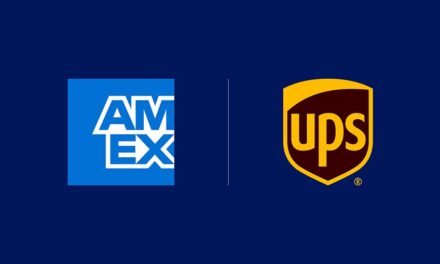
EU requires “substantial concessions” to back UPS-TNT merger
Europe’s top competition official said on Friday that “substantial concessions” will be required if the EU Commission is to approve the EUR 5.16bn takeover of TNT Express by rivals UPS. Joaquin Almunia was speaking at a conference on competition policy and economics in Cernobbio, Italy, to defend the Commission’s record on allowing key business deals to go ahead.
But he said where his team found that a major merger would harm competition levels in a European market, action would be taken.
Almunia, who has spoken before of his concerns at the level of competition in the European small package express delivery market if the number of global integrators is reduced from four to three, insisted that the Commission was not looking to shield European companies from global competitors.
“Merger control is not the place for protectionist measures,” he said.
Almunia said the Commission’s view of the UPS-TNT deal fell along similar lines to its view of a potential EUR 1.3bn takeover of mobile phone company Orange in Austria by Hutchison.
“Our preliminary view is that serious competition concerns would arise in both cases, and substantial remedies are needed,” he said.
The EU Commission has been carrying out a “Phase 2” review of the EUR 9.50-per-share offer from UPS for TNT Express since July.
UPS and TNT Express have expressed repeated confidence that the continuing review is a normal part of such a major acquisition, and that the Commission will ultimately grant approval early in 2013. Hopes are for a decision in early February.
Almunia said on Friday that the Commission has blocked only 22 mergers since 1990. Last year saw 299 of 309 proposals cleared at the Phase 1 stage, with only one transaction blocked after a Phase 2 review.
Concerns
On Friday, the EU antitrust chief did not state specifics on the concessions UPS and TNT would have to make after the companies received from the Commission last month a formal Statement of Objections – a document that lays out the detailed competition concerns of the EU’s executive branch, but is highly confidential.
However, explaining the review process, Almunia did reveal that his team was not merely concerned about the dominance of a single company within a marketplace, but also oligopoly situations where a small number of companies dominate – and where “unilateral effects” can emerge.
“High market shares are not always problematic,” he said. “Conversely, sometimes even moderate shares can impair competition. It all depends on the actual market conditions in which each individual deal takes place.”
Almunia said as well as the impact on price from key mergers, his team was examining potential impacts on service quality, choice and innovation.
This was particularly important in the currently difficult European economic conditions, he said.
“We always look with great care at the claims made by companies that their merger can improve efficiency,” he said. “We also reject these claims when the benefits are kept as private profits rather than being transferred to the economy in terms of prices or innovation.”
UPS and TNT are believed to have market shares of 23% and 14% in the European express market, compared to DHL’s 41% and FedEx’s 10%. It is believed that EU officials are particularly concerned about the impact of the merger of UPS and TNT on overnight delivery rates faced by smaller businesses in Europe, and in certain key European countries.
To get EU officials on side, UPS and TNT will have to show that sufficient alternatives exist in the European express market – perhaps showing that other door-to-door European express and parcel networks like DPD and Eurodis also offer competition to the integrators.
US media reported claims yesterday that the Statement of Objections cites competition concerns in 25 of the 27 European Member States, which would not necessarily be solved by selling operations in individual countries.
UPS and TNT are already talking to interested buyers about the TNT Airways and PanAir air operations, looking at a sale in order to maintain the airline’s full EU market access rights, which would be threatened by ownership by a non-European company.
TNT documents suggest the assets it has held for disposal are valued at EUR 208m, including EUR related to aircraft, EUR 1m related to vehicles and EUR 72m related to assets of TNT Airways and PanAir.
DHL
In an interview within Mail & Express Review magazine, Post&Parcel’s sister title, due out next month, DHL Express Europe chief executive John Pearson said it was quite clear that the Commission was concerned about the impact of the UPS-TNT deal on trade in the European Union.
“If there is one less competitor in the market, then history and experience suggests that prices may drift up,” he said, but added that DHL Express itself is focussing on providing the best possible time-definite international delivery services, and was “ambivalent” about whether the UPS-TNT deal actually goes ahead.
Pearson said DHL Express was talking to customers of its rivals concerned at the uncertainty surrounding the potential acquisition.
But the DHL Express Europe CEO said he believed there would never be more than three or four companies that can provide a real Europe-wide express delivery service, no matter how keen EU officials are on increasing competition in this area.
“Cost of entry is prohibitive,” he said. “There wouldn’t ever be a fifth player, unless a Chinese company decided to put a lot of investment into coming here.”
- For details on subscribing to Mail & Express Review magazine, click here »












